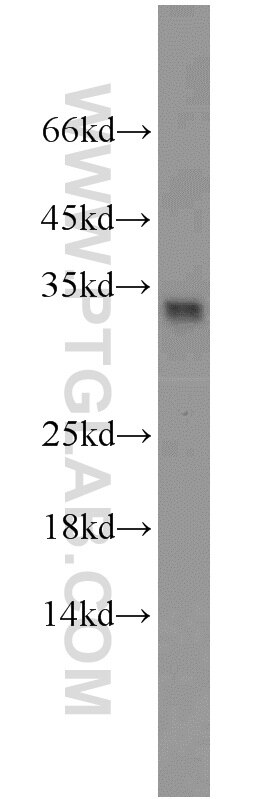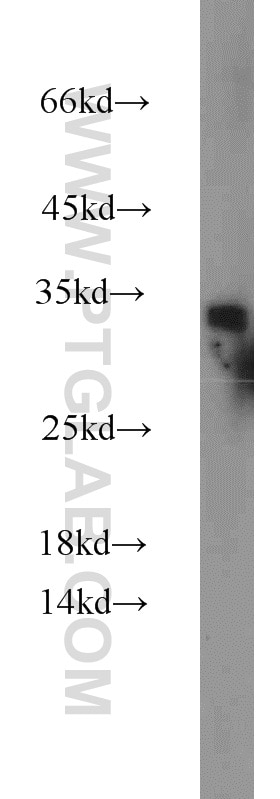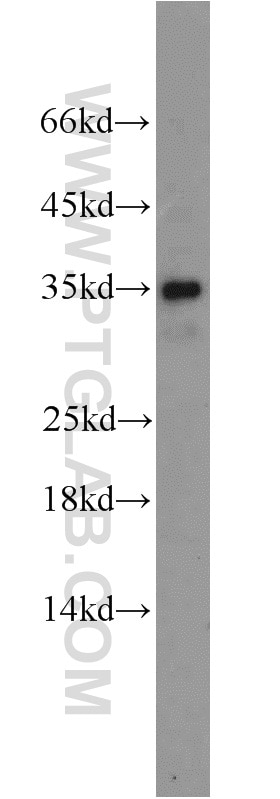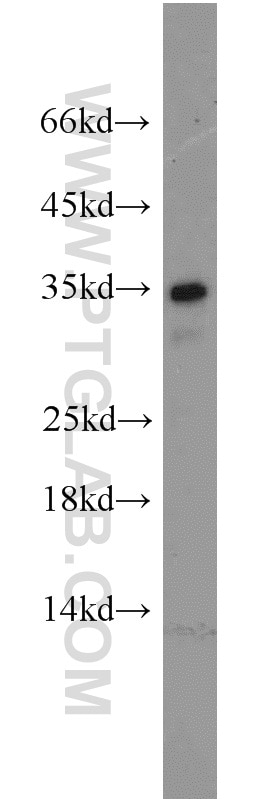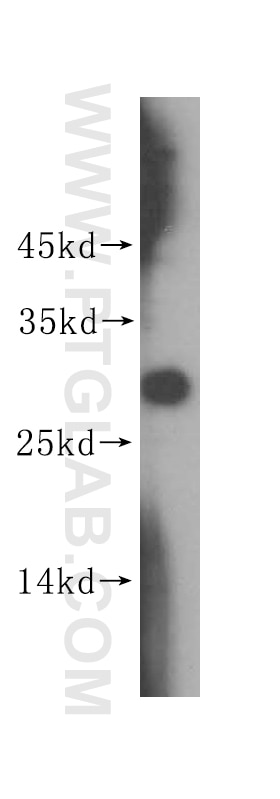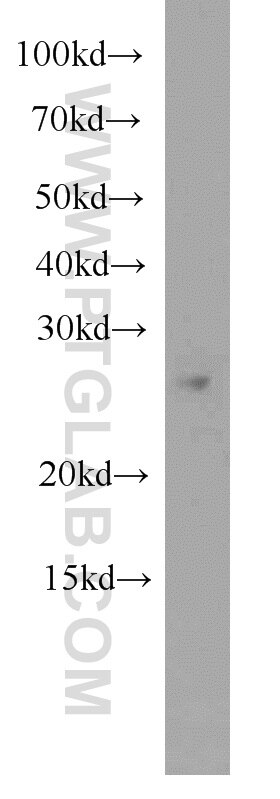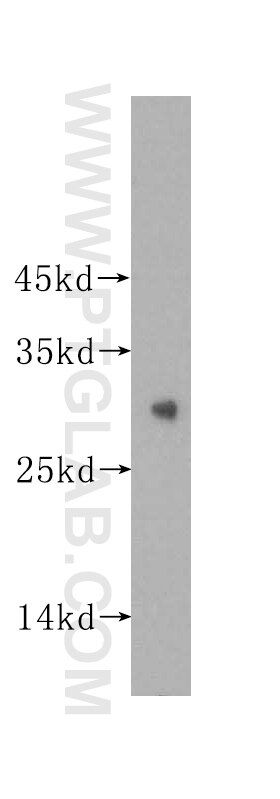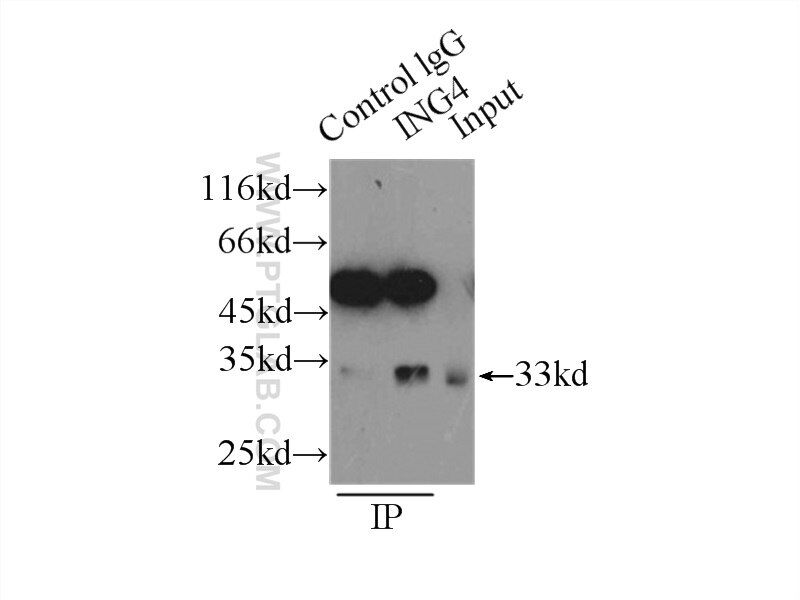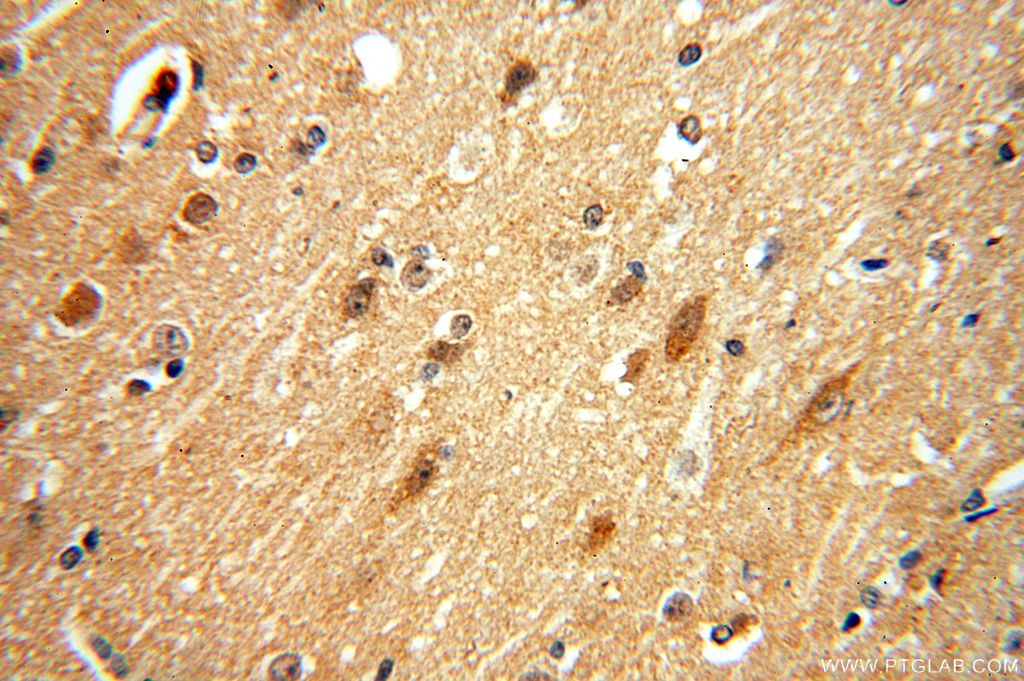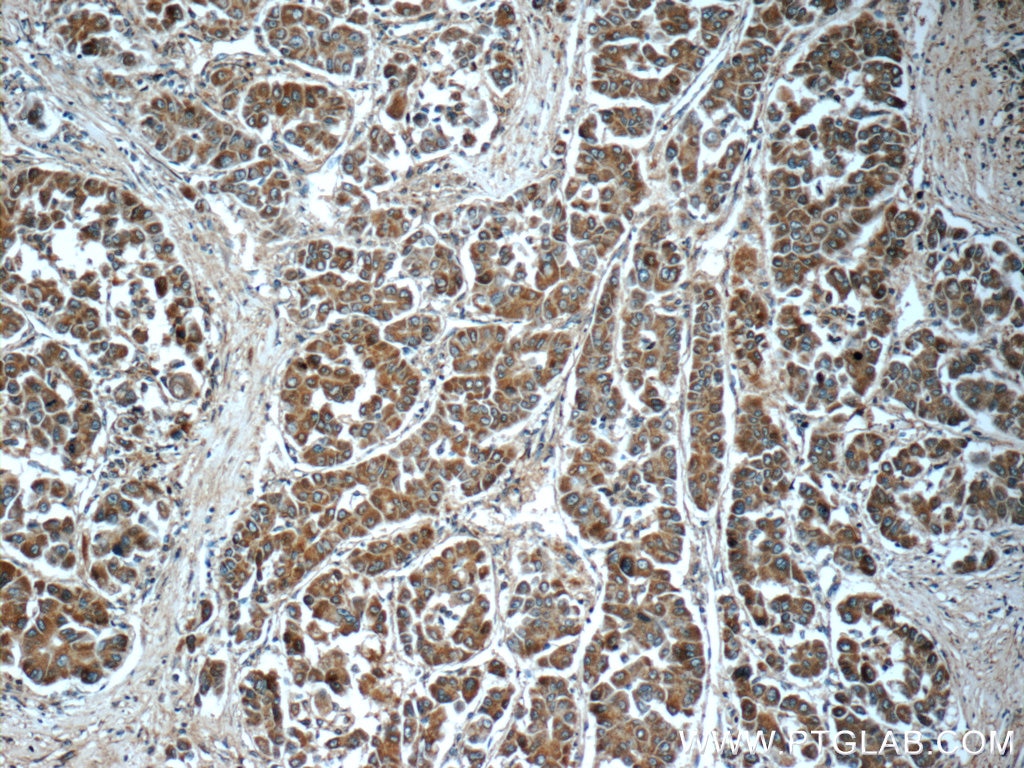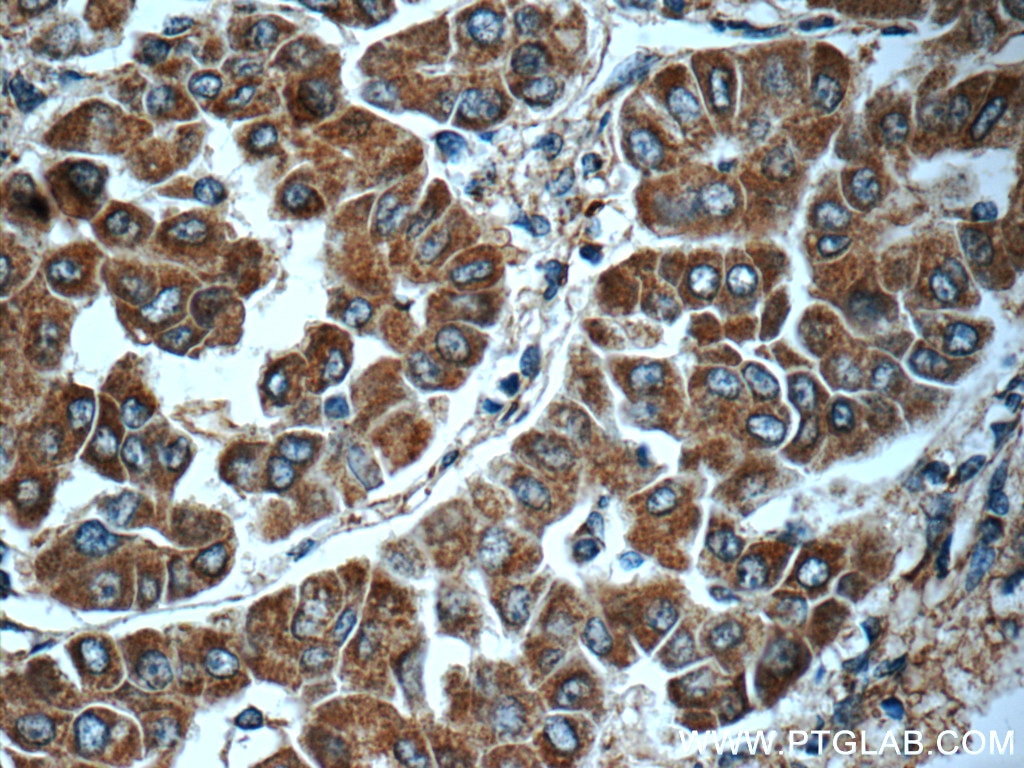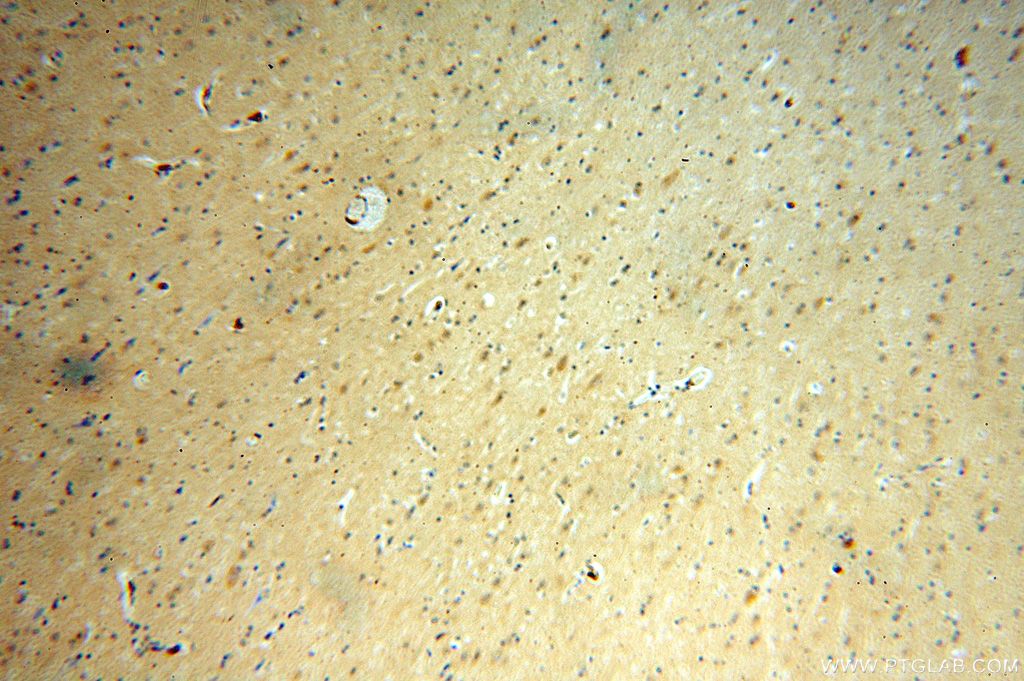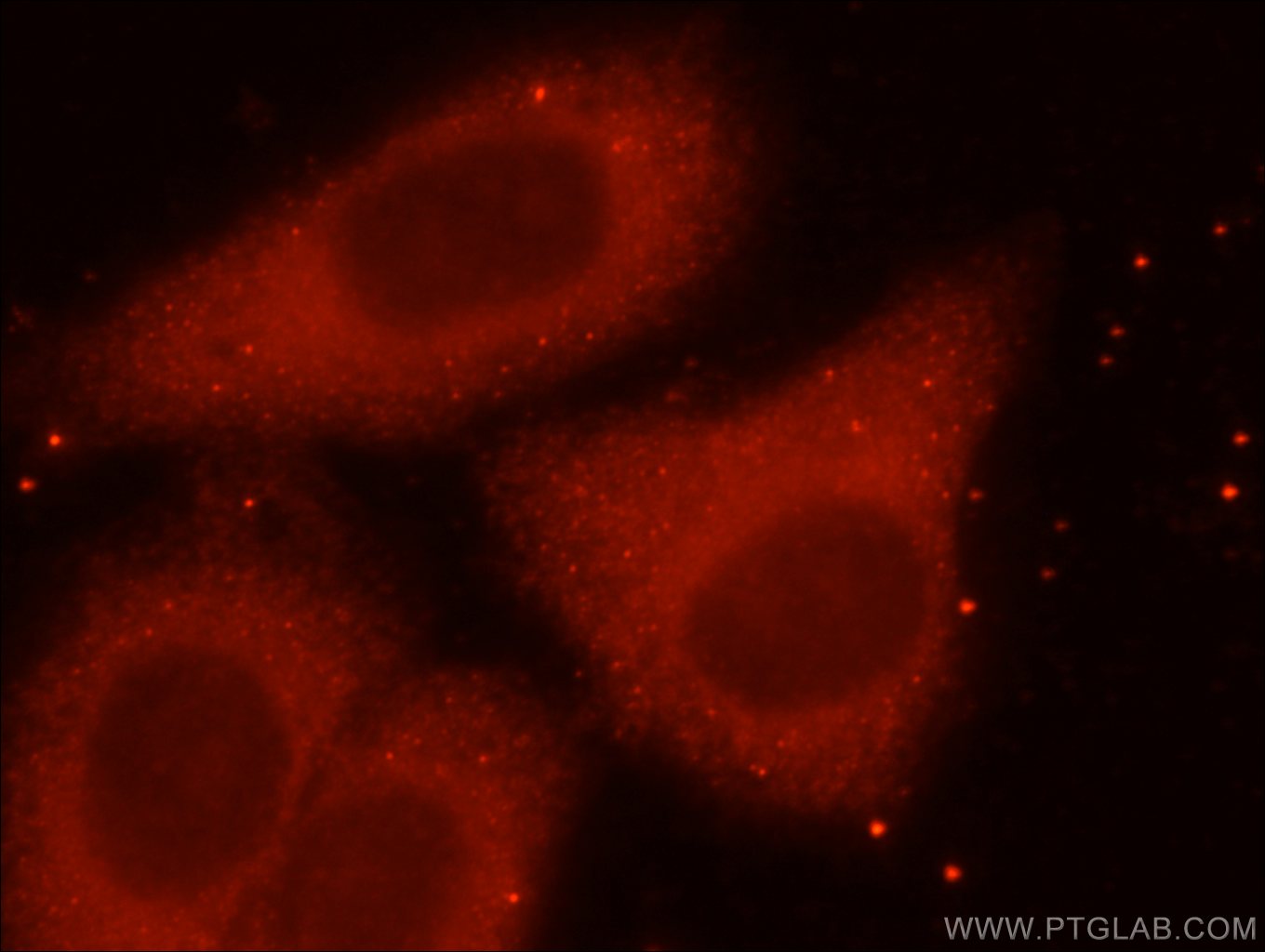Tested Applications
| Positive WB detected in | Jurkat cells, HEK-293 cells, HeLa cells, mouse colon tissue |
| Positive IP detected in | HeLa cells |
| Positive IHC detected in | human brain tissue, human liver cancer tissue Note: suggested antigen retrieval with TE buffer pH 9.0; (*) Alternatively, antigen retrieval may be performed with citrate buffer pH 6.0 |
| Positive IF/ICC detected in | HepG2 cells |
Recommended dilution
| Application | Dilution |
|---|---|
| Western Blot (WB) | WB : 1:500-1:1000 |
| Immunoprecipitation (IP) | IP : 0.5-4.0 ug for 1.0-3.0 mg of total protein lysate |
| Immunohistochemistry (IHC) | IHC : 1:20-1:200 |
| Immunofluorescence (IF)/ICC | IF/ICC : 1:10-1:100 |
| It is recommended that this reagent should be titrated in each testing system to obtain optimal results. | |
| Sample-dependent, Check data in validation data gallery. | |
Published Applications
| WB | See 2 publications below |
| IHC | See 5 publications below |
| IF | See 1 publications below |
Product Information
16188-1-AP targets ING4-specific in WB, IHC, IF/ICC, IP, ELISA applications and shows reactivity with human, mouse, rat samples.
| Tested Reactivity | human, mouse, rat |
| Cited Reactivity | human |
| Host / Isotype | Rabbit / IgG |
| Class | Polyclonal |
| Type | Antibody |
| Immunogen |
Peptide Predict reactive species |
| Full Name | inhibitor of growth family, member 4 |
| Calculated Molecular Weight | 29 kDa |
| Observed Molecular Weight | 29-32 kDa |
| GenBank Accession Number | NM_001127582 |
| Gene Symbol | ING4 |
| Gene ID (NCBI) | 51147 |
| RRID | AB_2127798 |
| Conjugate | Unconjugated |
| Form | Liquid |
| Purification Method | Antigen affinity purification |
| UNIPROT ID | Q9UNL4 |
| Storage Buffer | PBS with 0.02% sodium azide and 50% glycerol, pH 7.3. |
| Storage Conditions | Store at -20°C. Stable for one year after shipment. Aliquoting is unnecessary for -20oC storage. 20ul sizes contain 0.1% BSA. |
Background Information
ING4, also named as p29ING4, belongs to the ING family. It is a component of the HBO1 complex which has a histone H4-specific acetyltransferase activity, a reduced activity toward histone H3 and is responsible for the bulk of histone H4 acetylation in vivo. It may inhibit tumor progression by modulating the transcriptional output of signaling pathways which regulate cell proliferation. ING4 can suppress brain tumor angiogenesis through transcriptional repression of RELA/NFKB3 target genes when complexed with RELA. It may also specifically suppress loss of contact inhibition elicited by activated oncogenes such as MYC. Represses hypoxia inducible factor's (HIF) activity by interacting with HIF prolyl hydroxylase 2 (EGLN1). ING4 is a tumor suppressor gene that interacts with NFkB and represses its transcriptional activity. Several lines of evidence suggest that the tumor suppressor gene ING4, NFkB and its target genes matrix metalloproteases MMP-2, MMP-9 and u-PA are critically involved in tumor invasion. This antibody is specifically against p29ING4.
Publications
| Species | Application | Title |
|---|---|---|
Oncogene ING4 regulates a secretory phenotype in primary fibroblasts with dual effects on cell proliferation and tumor growth. | ||
Am J Physiol Heart Circ Physiol Carvedilol-responsive microRNAs, miR-199a-3p and -214 protect cardiomyocytes from simulated ischemia-reperfusion injury. | ||
Oral Oncol Downregulation and translocation of nuclear ING4 is correlated with tumorigenesis and progression of head and neck squamous cell carcinoma. | ||
Acta Histochem Inhibitor of growth 4 (ING4) inhibits hypoxia-induced EMT by decreasing HIF-1α and snail in HK2 cells. | ||

